Introduction
What Do Cockatiels Eat: Cockatiels, charming and sociable parrots native to Australia, are beloved companions for bird enthusiasts around the world. These petite birds are not only cherished for their playful personalities and distinctive crest, but also for their unique dietary preferences. Proper nutrition is essential to ensure the health and vitality of these feathered friends. We will delve into the diverse dietary requirements of cockatiels, examining their natural food sources, essential nutrients, and recommended diets for keeping these delightful birds happy and thriving in captivity. Whether you’re a seasoned cockatiels eat owner or considering bringing one into your home, understanding their dietary needs is crucial for their overall well-being. So, let’s embark on a journey into the world of cockatiel nutrition to ensure that your feathered friend enjoys a nourishing and satisfying diet. In the wild, cockatiels primarily forage for their food, which includes a variety of seeds, grasses, fruits, and even the occasional insect.
This diverse diet ensures they receive a wide range of essential nutrients, such as vitamins, minerals, and proteins, necessary for their survival and good health. However, when kept as pets, it’s important for cockatiels to have a carefully balanced diet provided by their human caregivers. As we delve deeper into this topic, we will explore the specific types of foods that should be included in a cockatiel’s diet, as well as those that should be avoided to prevent health issues. We will also discuss the importance of fresh water, treats, and supplements in maintaining their overall well-being. Understanding what to feed your cockatiel is not only crucial for their physical health but also for fostering a strong bond between you and your feathered companion. So, let’s embark on this informative journey to learn more about the dietary habits and requirements of these charming and intelligent birds. Whether you’re a new cockatiel owner or a seasoned enthusiast, this knowledge will help you provide the best possible care for your beloved avian friend.
Pelleted diets formulated specifically for cockatiels are available and can serve as the foundation of their diet. These pellets are designed to provide essential vitamins, minerals, and nutrients in a balanced way. Cockatiels enjoy a variety of fruits, including apples, pears, bananas, and berries. These fruits provide crucial vitamins, such as vitamin C, and can be a tasty treat for your feathered friend. Offer vegetables like carrots, broccoli, spinach, and kale. These provide essential vitamins and fiber, promoting good digestion and overall health. While seeds and nuts should not be the primary part of their diet due to their high fat content, they can be offered in moderation as occasional treats. Sunflower seeds, safflower seeds, and almonds are some favorites. Cockatiels can benefit from grains like cooked brown rice, whole wheat bread, and pasta in small quantities. Lean sources of protein such as cooked chicken, eggs, and tofu can be given occasionally. It’s crucial to monitor your cockatiel’s diet and adjust it according to their individual needs and preferences.
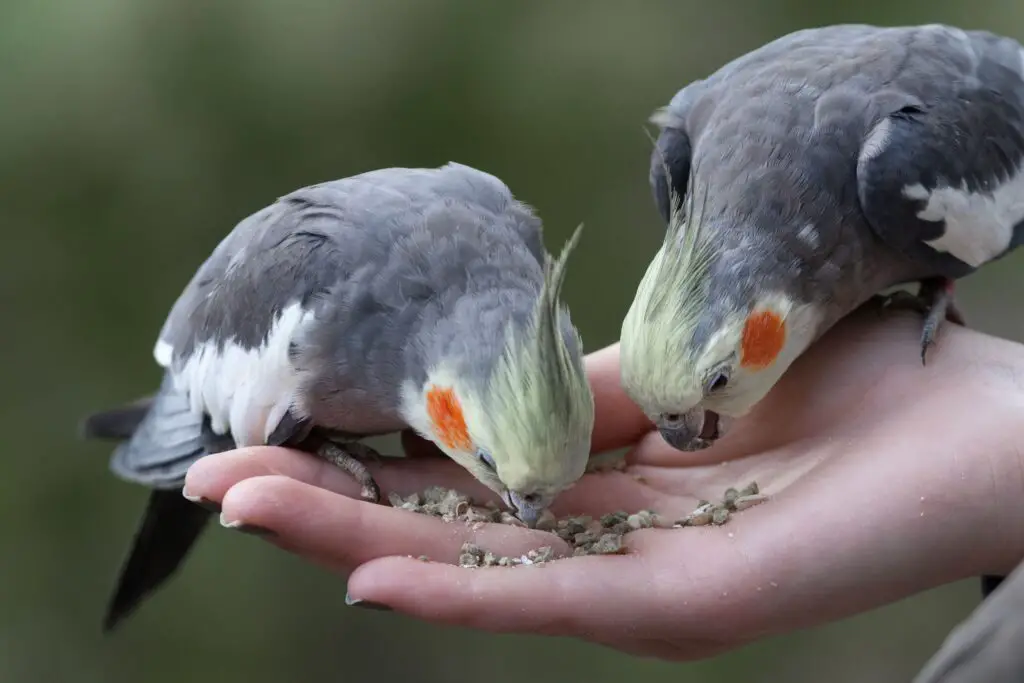
Can cockatiels eat rice?
Yes, boiled rice is ok to give to cockatiels. However, if possible, you should prefer to give them brown rice rather than white. White rice has far fewer nutrients and does not offer any significant benefits to your bird. Always make sure to only give rice in moderation because it is a high-carb food product.
While rice can be a part of their diet, it should be given in moderation. Rice is primarily a source of carbohydrates, and cockatiels require a balanced diet that includes a variety of foods, such as fruits, vegetables, and pellets, to meet their nutritional needs.
Rice should not be the sole or even the primary component of your cockatiel’s diet. It’s important to offer a wide range of foods to ensure they receive all the necessary vitamins, minerals, and nutrients.
Some cockatiels may be sensitive or allergic to certain grains, including rice. Keep an eye on your bird’s reaction when you introduce rice into their diet. If you notice any adverse reactions, such as digestive issues or changes in behavior, consider eliminating rice from their diet.
Can cockatiels eat normal food?
In their native Australia, they eat a variety of seeds (grass seeds), fresh and dry nuts, berries and vegetation. The UK has a different type of grass, but Cockatiels can still be fed a seed diet along with fruit, vegetables and occasionally human food.
Cockatiels can indeed eat “normal” food, but it’s important to clarify what “normal” food means in the context of their dietary needs. Cockatiels, like all birds, have specific nutritional requirements that differ from what humans consider normal food. While they can share some common foods with us, it’s crucial to provide them with a diet tailored to their unique needs.
High-quality commercial cockatiel pellets are specially formulated to meet the dietary needs of these birds. They contain essential vitamins, minerals, and nutrients, making them a fundamental part of a cockatiel’s diet.
It’s important to avoid feeding your cockatiel foods that are toxic to birds, such as chocolate, caffeine, alcohol, and avocado. Additionally, “normal” human foods like salty, sugary, or highly processed items should not be part of their diet.
Does cockatiel eat banana?
Yes, cockatiels can eat bananas as a treat. But it’s important to remember fresh fruits should only be given to pet birds in moderation as a supplement to a balanced diet.
Remember that a balanced diet for your cockatiel should include a variety of foods. Banana should complement other fresh fruits and vegetables, high-quality pellets, and lean protein sources.
Banana is a good source of vitamins and minerals, including vitamin C, vitamin B6, potassium, and dietary fiber. These nutrients can provide a nutritional boost to your cockatiel when offered as part of a diverse diet.
When introducing any new food to your cockatiel’s diet, pay attention to their reactions. Some birds may have preferences, while others may not show interest. It’s essential to be patient and offer a variety of foods to meet their unique tastes.
Is carrot OK for cockatiels?
Carrots are one of the favorite foods of cockatiels. The sweet and crunchy texture of carrots is something most birds enjoy, and cockatiels are particularly fond of them. If you offer your cockatiel a piece of carrot, they will never say no. And yes, it is a safe food item to include in your bird’s diet.
Before giving carrots to your cockatiel, wash them thoroughly to remove any pesticides or dirt. You can then slice or grate the carrot into small, manageable pieces. Cockatiels have small beaks, so providing appropriately sized carrot pieces makes it easier for them to eat.
While carrots are a nutritious food, they are also relatively high in natural sugars. Therefore, it’s important to offer them in moderation. Treats like carrots should be part of a balanced diet and not the primary source of nutrition.
Carrots are a rich source of beta-carotene, which the body converts into vitamin A—a vital nutrient for cockatiels’ eye health, skin health, and overall well-being. They also contain fiber, which can aid in digestion.
Do cockatiels sleep at night?
Sleeping for at least 10-12 hours daily is crucial to your cockatiel’s well-being. Cockatiels sleep when night falls. So once the sun sets, you can start winding your bird down for the day. Reduce your interactions with it, dim the lights, cover the cage with a cloth, and so on.
Avoid any loud noises or disturbances during your cockatiel’s sleep hours. Cockatiels are sensitive to changes in their environment, and disruptions can affect their sleep quality.
Cockatiels often sleep with one eye open and one eye closed. This adaptation allows them to stay vigilant for potential predators, even while resting. It’s normal for them to occasionally shift position or briefly wake up during the night.
Changes in your cockatiel’s sleep patterns, such as excessive sleepiness or insomnia, could be indicative of health issues. If you notice any significant alterations in their sleep behavior, it’s essential to consult an avian veterinarian for a health checkup.
Can cockatiels eat egg?
Eggs are full of protein and calcium and definitely a good choice for cockatiels in moderation. However, it might take time for your cockatiel to start eating a new food item. Offer eggs in a shallow dish with plenty of fresh water. If they still don’t eat it, you might have to resort to feeding them supplements.
Eggs should be cooked before offering them to your cockatiel. Hard-boiled eggs are a popular choice. Ensure that the eggs are thoroughly cooked and cooled before serving. Remove the shell and cut the egg into small, manageable pieces.
While eggs are nutritious, they are also relatively high in protein and fat. Therefore, they should be offered in moderation as part of a balanced diet. Treats like eggs should complement other foods, such as fresh fruits, vegetables, and pellets, rather than being the primary source of nutrition.
Eggs are an excellent source of protein, providing essential amino acids that contribute to your cockatiel’s muscle development and overall health. They also contain vitamins like vitamin D and minerals such as calcium and phosphorus, which are vital for bone health.
Is milk OK for cockatiels?
Cockatiels are lactose intolerant and feeding them milk can cause problems with their digestive system and can be painful and even fatal. They can also show symptoms of milk allergies which can result in vomiting and even death.
Milk is not considered suitable for cockatiels and is best avoided in their diet. Cockatiels are lactose intolerant, which means they lack the necessary enzymes to digest lactose, the sugar found in milk and other dairy products, properly. Feeding them milk or dairy can lead to digestive issues, including diarrhea and stomach discomfort.
While milk is not a suitable beverage for cockatiels, it’s essential to provide them with fresh, clean water at all times. Water is crucial for their hydration and overall health. Cockatiels rely on water for various bodily functions, and it should be their primary source of liquid.
If you are looking for alternative sources of calcium for your cockatiel, consider providing them with a mineral block or a cuttlebone. These items can help maintain healthy beaks and provide the necessary calcium supplementation without the digestive issues associated with dairy products.
Can cockatiels eat tomato?
Cockatiels can eat raw tomatoes as long as they are not underripe or rotten. Raw tomatoes should be washed first to remove any pesticide residues that may be present. Next, cut them up into small pieces before feeding them to the bird.
Before offering tomatoes to your cockatiel, make sure they are thoroughly washed to remove any pesticides or contaminants. Slice the tomato into small, manageable pieces that are easy for your bird to eat.
While tomatoes are nutritious, they are also slightly acidic and contain a compound called solanine in their leaves and stems. Solanine can be toxic in large quantities. Therefore, tomatoes should be offered in moderation as part of a balanced diet, and the green parts (leaves and stems) should be avoided entirely.
Tomatoes are rich in vitamins such as vitamin C, vitamin K, and vitamin A, as well as minerals like potassium and dietary fiber. These nutrients can contribute to your cockatiel’s overall health.
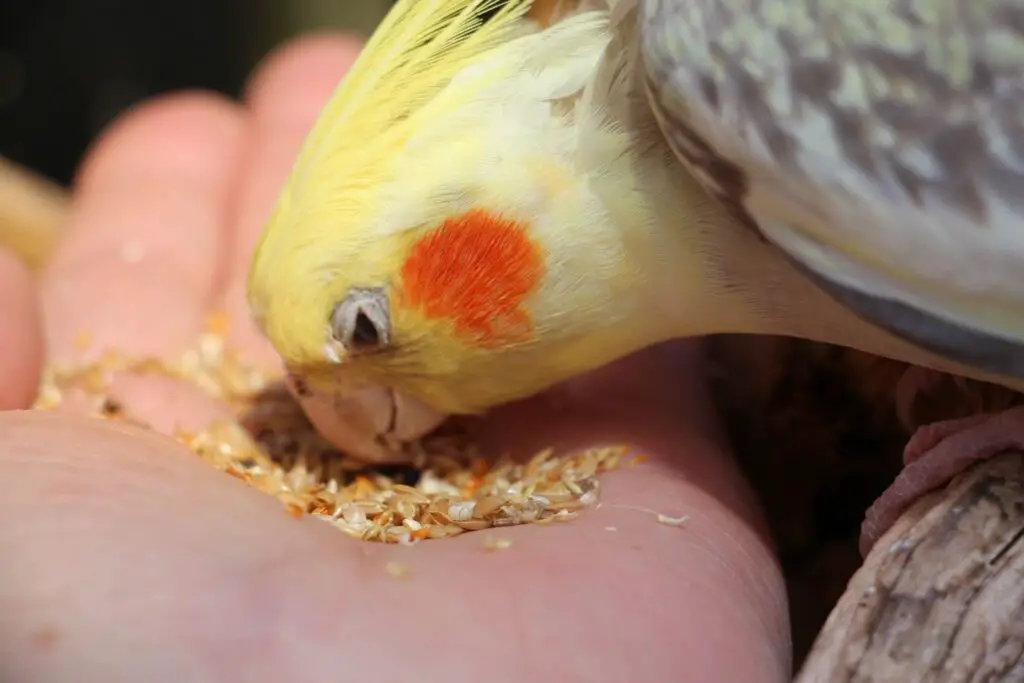
Conclusion
Understanding what cockatiels eat is essential for their health, happiness, and longevity as beloved companions. These delightful birds, native to Australia, have dietary preferences that include a variety of seeds, fruits, vegetables, and more. When kept as pets, it’s vital to provide them with a balanced and nutritious diet that mirrors their natural foraging habits. A well-rounded cockatiel diet consists of high-quality pellets, fresh fruits, vegetables, and occasional treats like seeds and nuts. Monitoring portion sizes, providing clean water, and offering mineral supplements are essential aspects of their nutrition. It’s equally important to avoid feeding them toxic foods and to maintain a feeding schedule that suits both you and your cockatiel. By ensuring that your cockatiel receives the right combination of nutrients, you not only promote their physical health but also foster a strong bond between you and your feathered friend. With proper nutrition, your cockatiel will thrive, exhibiting vibrant plumage, playful behavior, and the joyful companionship that makes them cherished members of the family.
So, as you embark on this journey of caring for your cockatiel, remember that a well-fed bird is a happy bird, ready to fill your life with love and laughter. In addition to providing proper nutrition, it’s essential to observe your cockatiel’s individual preferences and needs. Just like humans, each cockatiel may have unique tastes and dietary requirements. Some may be more inclined to enjoy certain fruits or vegetables over others, or they may have specific treat preferences. Paying attention to their likes and dislikes can help you create a diet that suits their preferences while ensuring they receive the necessary nutrients. Regular visits to an avian veterinarian are also crucial to monitor your cockatiel’s overall health and nutritional status.
These professionals can offer dietary recommendations based on your bird’s specific condition and age, ensuring that any potential deficiencies or health issues are promptly addressed. Providing the right diet for your cockatiel is a fundamental aspect of responsible pet ownership. A well-balanced and varied diet, combined with attentive care and regular veterinary check-ups, will contribute to a long and fulfilling life for your feathered companion. So, embrace the journey of nurturing your cockatiel’s nutritional needs, and you’ll be rewarded with the delightful company of a healthy and contented bird. In addition to the nutritional aspect, mealtime can also serve as a bonding opportunity between you and your feathered friend. Interacting with your cockatiel during feeding, offering treats by hand, and talking to them can strengthen your relationship and provide mental stimulation.

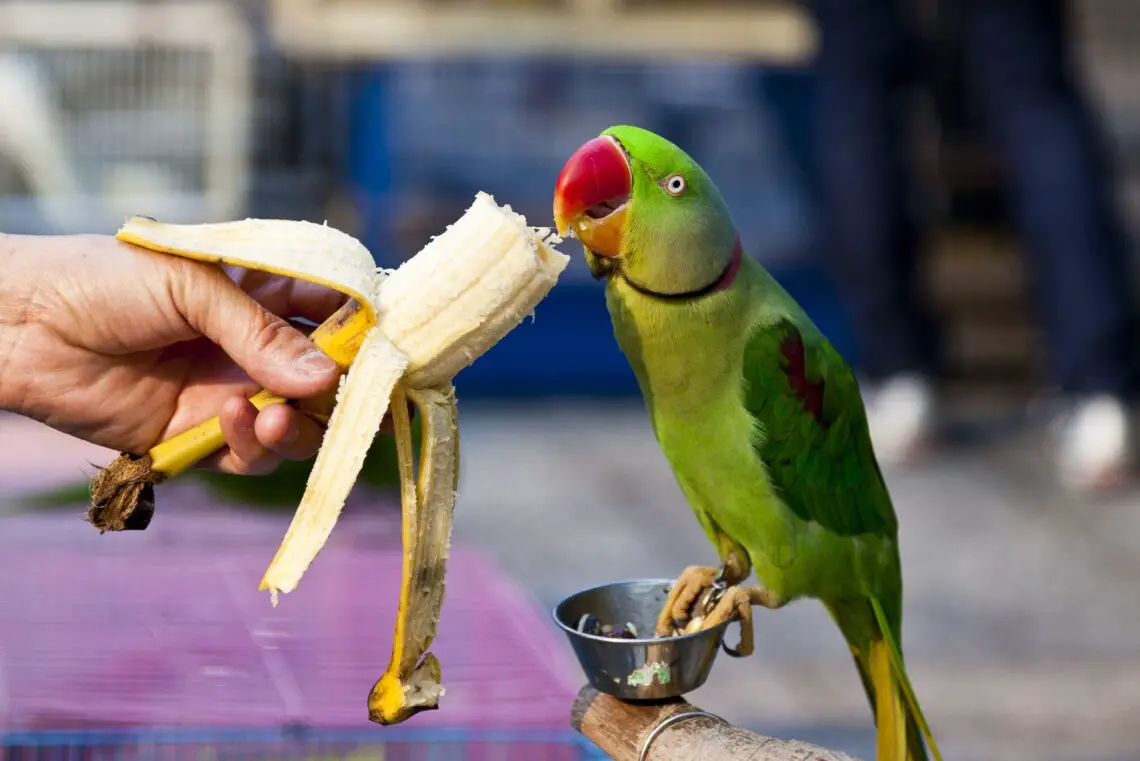
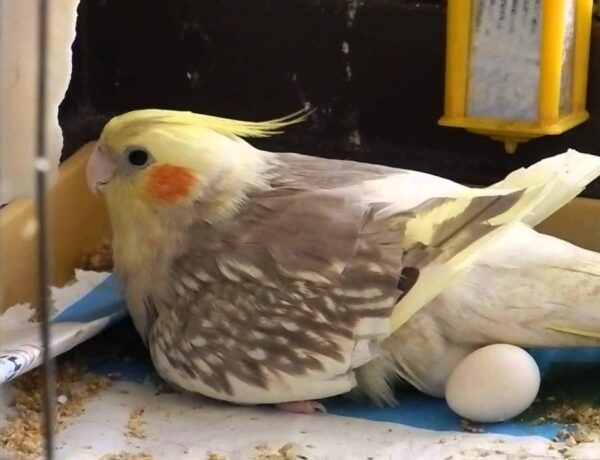
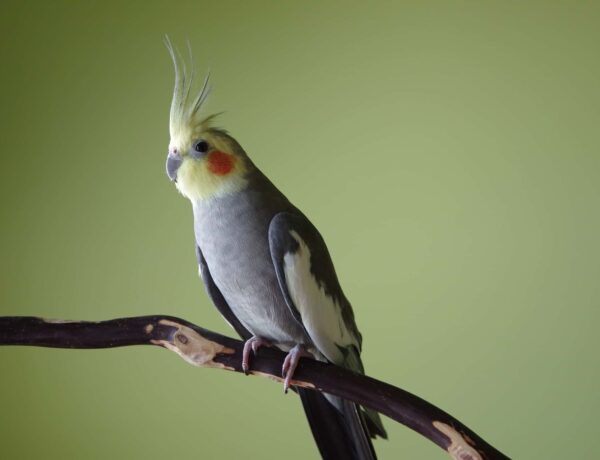
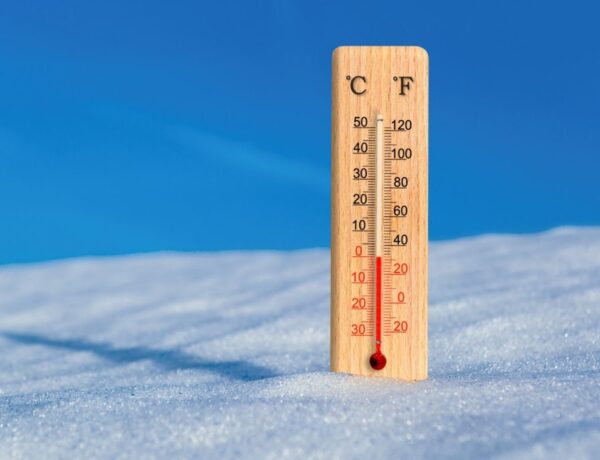
No Comments